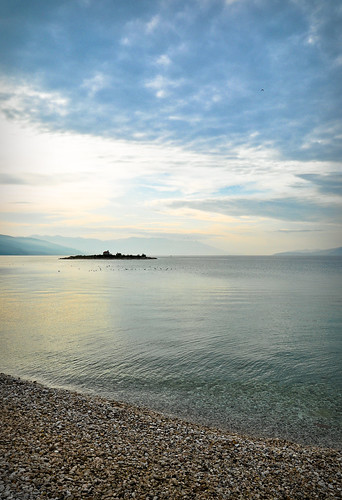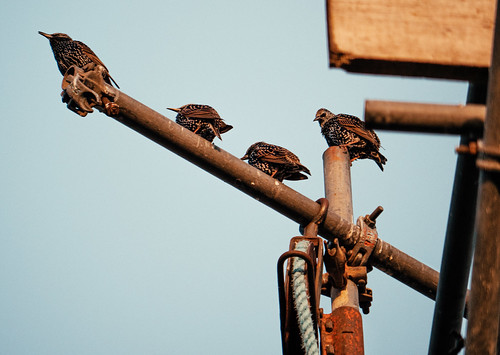From the category archives:
Academia
Thinking back over the past two decades, which of the following events that took place since the fall of the Berlin Wall (1989) are the important moments when something different could have been done that might have saved us from being in the situation we are in? How might history have unfolded differently? Are there key events to notice in Asia, Africa and Latin American that ought to be on the list? What is cause and what is merely symptom? Please suggest additional key moments in comments.
- The decision of the US Supreme Court to award the Presidency to George W. Bush instead of Al Gore (2000)
- The attacks on the Twin Towers (2001)
- The decision by Bush, supported by Blair, to invade Iraq (2003)
- The failure of policy-makers to anticipate and avert the financial crisis (2008)
- The failure of European leaders to manage the Eurozone crisis so as to avert mass unemployment etc (2009- )
- The Arab spring (2010- )
- The “migrant crisis” in Europe (2015-)
- The Brexit vote (2016)
- The election of Donald Trump (2016)
I’m joining John in going all in on Covid research. In the Fall, I signed a contract with The MIT Press for a book about the digital aspects of the pandemic’s early weeks. Scoping is tricky with an ongoing event not just in terms of topical focus, but also time span. I imagine we’ll be trying to make sense of what happened and how people experienced the events with what long-term implications for quite some time. I’m taking on the digital aspects of the first month or so. I’m basing the book on survey data I collected in April and May in the US, and in April in Switzerland and Italy.
It’s a digital inequality story whereby people in more privileged positions were able to pivot to online resources better, which may not be shocking, but worth exploring in detail given the extreme reliance on virtual communication in these times and many assumptions that such resources are readily available to all. There are also interesting nuances. Not all groups that one may expect to experience the circumstances negatively necessarily did so. For example, people with disabilities were more active on social media discussing the pandemic than those without disabilities. Whether this was a good thing or not is, of course, another question, one I plan to dig into through looking at knowledge about the pandemic and also people’s feelings of social connectedness. (This being a cross-sectional study, however, will limit my ability to comment on changes concerning survey participants’ specific circumstances.)
After explaining why a focus on the digital is relevant and giving some general social context as well as digital context of people’s situations, chapters focus on communicating during lockdown, how people used social media to connect about the pandemic in particular, what information sources people used for pandemic content and how this related to their knowledge about the virus, and who was able to pivot to working from home and what types of online learning people engaged in during this time. The book is about adults only so I will not be addressing things like how children’s homeschooling worked out.
This may be putting the cart before the horse, but I’m not sure how to think about the title. I’ve been playing with different ideas and would appreciate input. I started with Digital Survival: Who Thrives in Unsettled Times, but some reviewers of the proposal thought “digital survival” was too extreme. I’m not ready to abandon it as I do think digital connectivity has been very important and survival is not always used as a life-death distinction, but perhaps in this context it doesn’t work. What do you think? Or should I just go with Digital Inequality directly? I’m concerned that’s a bit jargony. (The book will be an academic trade publication.) Regarding the second half of the title, another approach is to foreground Covid instead of referring to unsettled times, but the idea is that the lessons learned would apply to other situations as well (e.g. political upheavals, natural disasters) so I don’t want it to sound narrower than necessary. I welcome your thoughts on this.
If Crooked Timber readers have not had enough of Brexit reflections from me today, there are more over at the LRB blog where I use Benjamin Constant’s distinction between the liberties of the ancients and the liberties of the moderns to illuminate, I hope, the false promise that with sovereignty Brexit brings freedom.
I wrote this for Public Ethics, addressing one of the theses from Feminism for the 99%, which claims that “liberal feminism is bankrupt.” That thesis reduces liberal feminism to corporate feminism or lean-in feminism. Against that reduction, I suggest that: “Properly understood, liberal feminism is radically egalitarian feminism—both as feminism and as liberalism. Properly situated, the values it espouses demand structural reform to redress economic disadvantage. That’s why, as a liberal feminist, I agree with the manifesto’s criticism of lean-in feminism.”
I then consider why, if liberal feminism properly understood is radically egalitarian, so many liberal feminist seem to be more focused on the women “breaking the glass ceiling” than on the women left to “clean up the shards.” One part of the answer:
“Liberalism offers a strong evaluative grounding for demands of justice on behalf of women across the social hierarchy—and indeed for demands that that hierarchy be demolished. The social subordination to which we subject the women sweeping up the shards is unjust on grounds of the freedom and equality that liberalism celebrates. Precisely because I think liberal feminism furnishes compelling diagnoses of these injustices and illuminating prescriptions for rectification, it strikes me as important to address the hard cases that it faces. These are cases wherein apparent choice seemingly shields inequity from censure—the cases that have long been regarded…as poison for liberal feminists. Redeeming liberalism’s promise as a radical evaluative framework requires addressing the cases wherein deference to choice appears to be justice-undermining. For liberal feminists, this notably includes cases of apparently voluntary compliance with gender norms, including gender norms about caregiving.”
I conclude that “liberalism can be a tool for building the movement this catastrophic moment demands—and it’s a tool the movement should be slower to cast aside.”
A brief note stating my view of the decision of the British government to award leading “gender-critical feminist” and philosopher Kathleen Stock the Order of the British Empire for “services to higher education”. Nobody thinks that Stock has been awarded this honour for her work in aesthetics, nor that she has made contributions to higher education in the UK that exceed those of thousands of other university employees. Rather, Stock’s award has to be seen as just another example of Boris Johnson’s government using its powers of patronage to prosecute an “anti-woke” culture war. Other examples of this were the appointments of David Goodhart and Jess Butcher to the Equalities and Human Rights Commission and the granting of a peerage to a leading member of the Spiked! (ex-Revolutionary Communist Party) network, Claire Fox. Many of these decisions appear to have been taken at the behest of Trade (but also Equalities) minister Liz Truss, who recently made a bizarre speech name-checking Foucault and suggesting that local councils, somehow influenced by Foucault, had put race and gender equality ahead of teaching children to read and write. Truss has also made a point of referencing the conflicts around trans rights in articles for the Daily Mail. Goodhart, the new EHRC commissioner, has been a vocal supporter of the “hostile environment” policy that led to the UK’s Windrush scandal; Butcher is on record as saying that women who are subject to workplace discrimination should find ways round the problem rather than bringing formal complaints. Nobody reflecting on the values and agenda that led to Butcher’s appointment can believe that the government which gave Stock an OBE has a serious commitment to the interests of women. In a parallel case in which the Trump administration had used its powers of patronage to honour “gender-critical feminists”, I have no doubt that American philosophers who have applauded Stock’s award would see it for what it is: the instrumentalization of discretionary power to fight the culture war. I’ve deliberately avoided going into Stock’s views in this post, although I am not a fan. Rather, I’ve confined myself to things that everyone on this side of the Atlantic who is reasonably well-informed about the facts, including, I suspect, Stock herself, knows to be true. (Comments turned off on this post.)
A new regular feature on CT! Once a week, we’ll be posting an open thread, where you can post on any topic you like, subject to the usual moderation rules.
The other purpose of this regular post will be to deal with thread derailment. An example is a recent thread on Brexit which deviated into a lengthy analysis of labelling rules for marmalade and chocolate. Disputes of this kind will be directed to the open thread, where the participants can argue to their hearts’ content.
The first suggested topic for discussion: what should we call this feature? The current title is not very imaginative, so feel free to suggest something better. Is Marmalade and Chocolate too obscure?
I’ve just finished watching Netflix’s new Turkish miniseries Ethos, set in Istanbul and directed by Berkun Oya. This has been very little reviewed in the Western press, as far as I can see. The Guardian’s what-to-watch for December doesn’t even mention it. And yet, I think it is one of the most compelling dramas I have seen for a while. The eight episodes link characters from diverse backgrounds linked through Meryem, a hijab-wearing house cleaner who is seeing a psychiatrist, Peri, because of recurring fainting episodes. She lives with her brother, the permanently angry Yasin, a nightclub bouncer and his depressive wife Ruhiye. Meryem cleans the flat of Sinan, a philandering playboy. We get to see a spectrum of Turkish life from devout village people to sophisticated urbanites and a world where women actually dominate the action (the men are passive, confused, at the mercy of events). The soundtrack is wonderful and the acting superb, as is the lingering cinematography. I’ve avoided posting spoilers, which disables me from saying too much about what happens, but it might help to know that Gülbin’s family is Kurdish, and to be primed to think about what is happening when the Hodja’s daughter, Hayrünnisa, leaves the house in the final episode. Some of the interest is Turkey-specific but there’s much that’s more universal, such as the clash between the educated urban set and the more religious “rednecks” from out of town. Give it a try!
I took part in a debate today with Martin Ruhs (Oxford) for Migration Mobilities Bristol on labour migration. I’ll put in a link to the full discussion when it is available, but meanwhile, here are my opening remarks:
We live in a world where extreme poverty coexists with great wealth and where the accident of birth with one nationality rather than another has more bearing on someone’s life prospects than anything else. We also know that migration from poor countries to wealthy ones is more effective in addressing global poverty than just about anything else. Migrants from poor countries to wealthy ones gain access to more productive economies, earn higher wages than they would have at home, and send back valuable remittances to a degree that vastly exceeds the value of foreign aid programmes.
Meanwhile, wealthy countries need migrant labour to do the jobs that too few of our own citizens will do: agriculture and food, social care, health, construction, hospitality. (Jobs, actually, that once were invisible but which COVID has brought home the value of.) But immigration is also a hot-button electoral issue and nativist parties have enjoyed great success in promoting restrictionist policies that pander to anti-immigrant sentiment among electorates.
In response to this conflict between what is economically desirable (for both sides) and what is politically palatable to electorates, many economists have argued for the idea of a trade-off between openness and rights, suggesting that we can make the labour migration that “we” need more palatable to electorates to the extent to which the inferior and temporary status of those migrants is made concrete by depriving them of some rights. Here, migration is conceived of in transactional terms: “We” get a flexible and exploitable labour force, perhaps plugging key skills gaps; “they” get more money and voters don’t feel threatened that these incomers will displace them in “their own” country.
[click to continue…]






